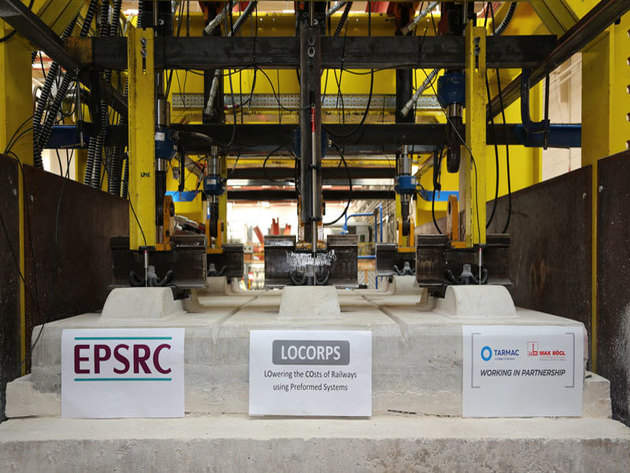

Heriot-Watt University in the UK is conducting tests on a slab track system that has been used in high-speed railways worldwide in order to analyse its suitability for deployment on the country's rail networks.
The project is being conducted at the university’s Geo-pavement and Railway Accelerated Fatigue Testing (GRAFT) facility and involves the testing of eight sections of an FFB Bögl slab track system and its associated sub-layers.

Discover B2B Marketing That Performs
Combine business intelligence and editorial excellence to reach engaged professionals across 36 leading media platforms.
The system utilises hydraulics to realistically simulate speeds and dynamic loads of high-speed railways that are equivalent to many years of track use.
Researchers from the Railway Research team are set to assess the slab’s performance in collaboration with colleagues from the University of Leeds as the machine performs an axle loading equivalent of 20 million tonnes across the top of the slab.
Heriot-Watt University Institute for Infrastructure and Environment director Omar Laghrouche said: “The slab track and its sublayers are being subjected to the envisaged loading cycles of a UK high-speed railway, which will exceed 20 million tonnes axle load per annum.
“We’re looking at differential track settlement, which is a serious problem in modern day railway engineering, with considerable cost and time implications.

US Tariffs are shifting - will you react or anticipate?
Don’t let policy changes catch you off guard. Stay proactive with real-time data and expert analysis.
By GlobalData“Settlement of substructure is the main cause of track deterioration, and this research will identify how we can mitigate settlement and ensure future high-speed rail projects in the UK are appropriately engineered and constructed.”
The monitoring process will see the track's plastic deformations and elastic behaviours plotted using multiple loading combinations, and the track's structure will be monitored for probable faults.
The performance of the soil layers and super-structure layers will also be evaluated as part of the initiative.
Heriot-Watt University is conducting the research as part of the EPSRC-funded Lowering the Costs of Railways using Preformed Systems project (LOCORPS), which intends to upgrade track performance and reduce the cost of new high-speed railway lines.
Image: Heriot-Watt University tests high-speed slab track. Photo: courtesy of Heriot-Watt University.





